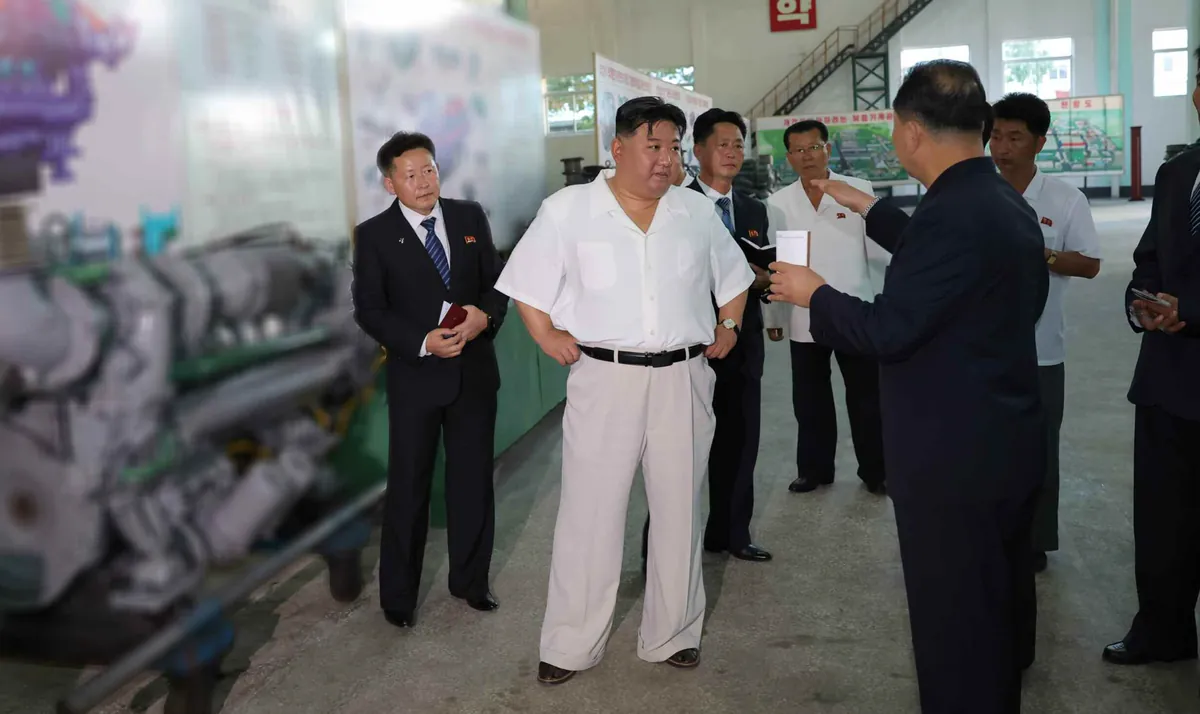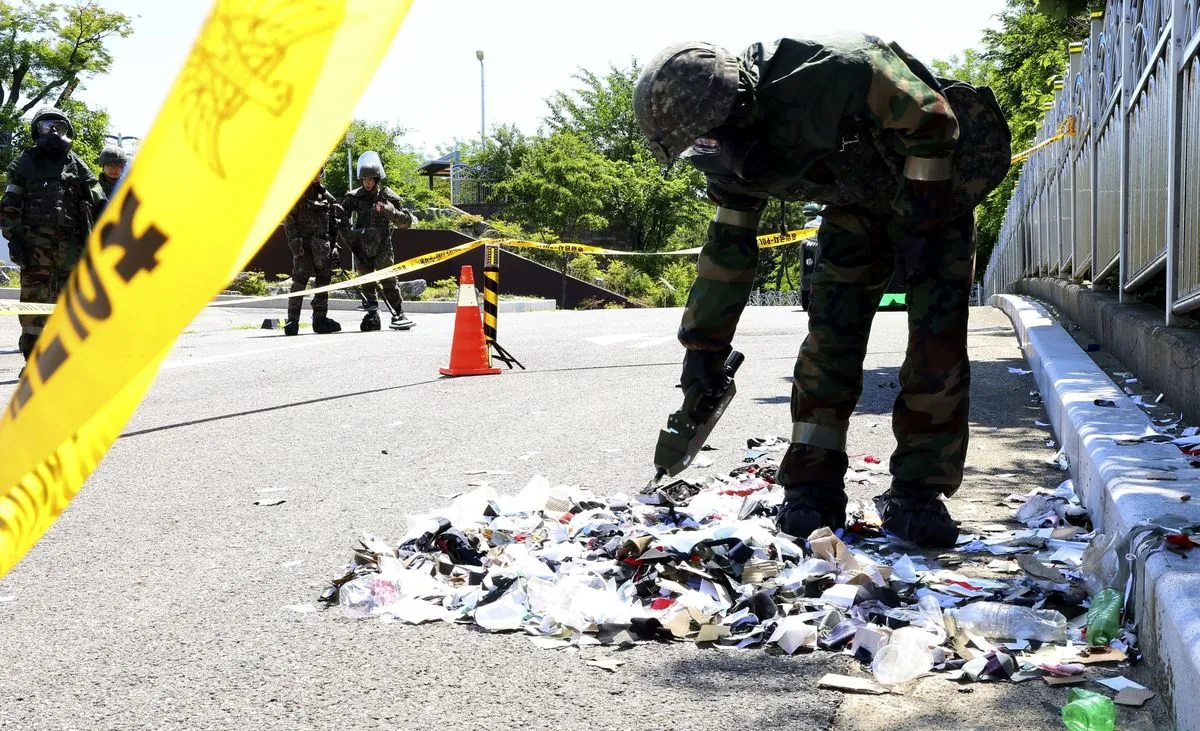Kim Jong Un Pledges to Bolster Nuclear Forces Amid Rising Tensions
North Korean leader vows to strengthen nuclear capabilities in response to perceived U.S. threats. Recent actions include new missile platform unveiling and balloon campaign against South Korea.

Kim Jong Un, North Korea's leader, has reaffirmed his commitment to enhancing the country's nuclear capabilities in response to perceived threats from the United States and its allies. This declaration comes as North Korea unveils a new platform likely designed for more powerful intercontinental ballistic missiles (ICBMs) targeting the U.S. mainland.
The statement was made during a speech commemorating the 76th anniversary of North Korea's founding on September 9, 2024. Kim cited what he termed the "reckless expansion" of a U.S.-led regional military alliance as a "grave threat" to his nation. In response, he pledged to "redouble measures and efforts" to ensure all armed forces, particularly the nuclear force, are fully combat-ready.
This rhetoric aligns with North Korea's longstanding policy of "Songun" or "military-first" politics, which prioritizes the armed forces in state affairs. The country's nuclear program, initiated with its first test in 2006, has been a source of international concern and has led to multiple rounds of sanctions.
North Korea's recent actions have heightened tensions in the region. The country has resumed launching trash-carrying balloons towards South Korea, a tactic reminiscent of Cold War-era psychological warfare. This campaign, which began in late May 2024, has been framed as a response to South Korean civilians sending propaganda leaflets across the border.

The escalation in provocative behavior comes in the wake of a new U.S.-South Korean defense guideline signed in July 2024. This agreement aims to integrate U.S. nuclear capabilities with South Korean conventional forces to address the growing North Korean nuclear threat. North Korea has interpreted this as evidence of invasion plans, despite repeated assurances from U.S. and South Korean officials to the contrary.
Since 2022, North Korea has significantly accelerated its weapons testing activities. While the country has made substantial progress in its nuclear and missile programs, experts believe some technological barriers remain in developing long-range nuclear missiles capable of reaching the U.S. mainland. However, North Korea is thought to possess missiles that can target key locations in South Korea and Japan.
Analysts speculate that North Korea may conduct nuclear tests or ICBM launches before the U.S. presidential election in November 2024. Such actions could be aimed at increasing leverage in future diplomatic negotiations, potentially to secure concessions like sanctions relief.
Recent developments include the unveiling of what appears to be a 12-axle missile launch vehicle, potentially indicating the development of a new ICBM larger than the current Hwasong-17. This revelation has sparked discussions about North Korea's evolving missile capabilities.
The ongoing tensions on the Korean Peninsula are rooted in the unresolved Korean War (1950-1953), which ended in an armistice rather than a peace treaty. North Korea's pursuit of nuclear weapons, justified by its leadership as necessary for self-defense, has led to its international isolation and economic challenges.
As the situation continues to evolve, the international community remains vigilant, with efforts to engage North Korea in denuclearization talks ongoing. The complex dynamics involving North Korea, its neighbors, and global powers underscore the delicate balance of security in Northeast Asia.


































